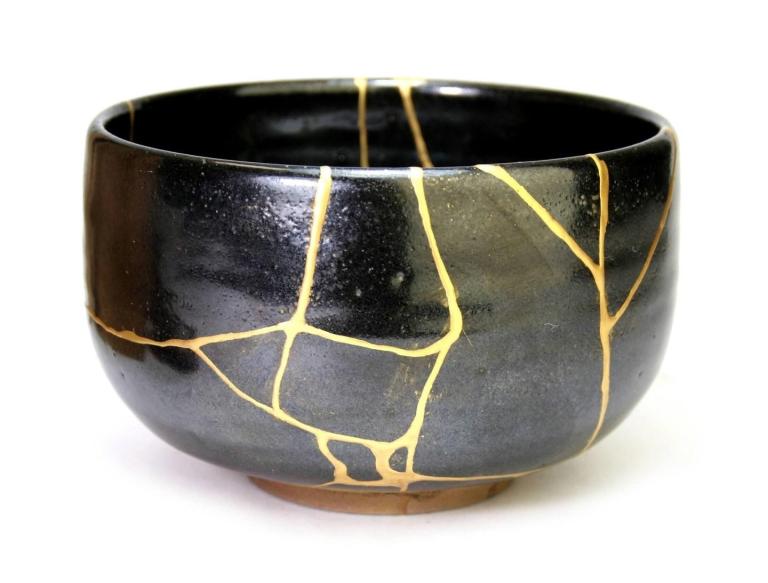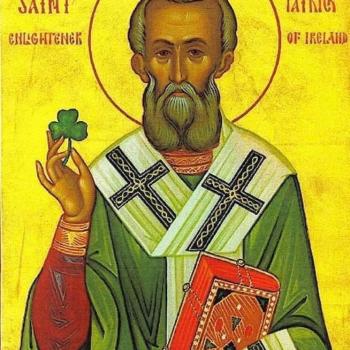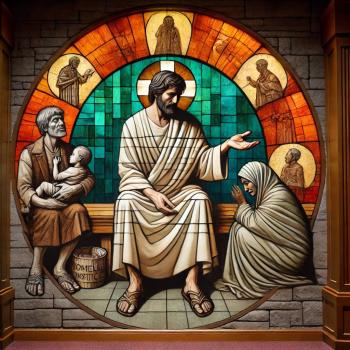Notes for a sermon…
Psalm 130
130:1 Out of the depths I cry to you, O LORD. 130:2 Lord, hear my voice! Let your ears be attentive to the voice of my supplications! 130:3 If you, O LORD, should mark iniquities, Lord, who could stand? 130:4 But there is forgiveness with you, so that you may be revered. 130:5 I wait for the LORD, my soul waits, and in his word I hope; 130:6 my soul waits for the Lord more than those who watch for the morning, more than those who watch for the morning. 130:7 O Israel, hope in the LORD! For with the LORD there is steadfast love, and with him is great power to redeem. 130:8 It is he who will redeem Israel from all its iniquities.
“Out of the depths I cry to you, O LORD. LORD, HEAR MY VOICE.”
How often do each of us cry out to the Lord, hear my voice?
From the depths of our despair and sadness. We cry out. From the depths of our frustrations, fears and irritations, we call on the Lord to hear our voice. With anguish and pain, we call upon the Lord. We are lost, O Lord, Lift us up.
“My God, my God, why have you forsaken me,” Jesus said, while hanging on the cross.
Even Jesus had his moments of doubt and pain. So there’s nothing wrong with us questioning God. It’s perfectly acceptable for us to ask God why? Why have you forsaken me? Why, God, do I feel alone?
Or perhaps the question should be, Why, Lord, why do I feel forsaken? Where are you Lord, in my moments of doubt? Where are you God, when I need you the most?
I know each of us has faced, are facing, or will face again difficult times.
Each of us has had Jesus moments of doubt and questioning.
You know what’s wearing you down, this week. You know what’s been heavy on your soul. You know why you need the Lord. You know why you wait for the Lord.
Incline your ear, O Lord, and hear our complaints and supplications.
I used to believe that the Lord had more important things to worry about than me and my problems. I used to think that God only worked in the lives of other people. In the lives of those who prayed better than I did. God only listened to people who had faith better than mine. What I once believed was wrong. The Lord, working through the Holy Spirit, has infinite time and patience to worry about me. And you. And infinite time to worry about each one of us.
In verse 5, it says “I wait for the LORD, my soul waits, and in his word I hope;”
The Hebrew word “to wait” is also the word “to hope.” So listen to this slightly different translation.
“I hope for the LORD, my soul hopes, and in his word I wait”
Of course, we know that in the beginning was the word, and Jesus is the word, so in Jesus, we wait. In Jesus, we hope.
Incline your ear towards us, O Lord, and hear our prayers.
Many of the psalms are associated with King David. The same David who defeated Goliath last week. But modern scholars believe that the psalms were written by different authors between the 9th and 5th centuries BC.
No matter when they were written, or by whom, the psalms speak to us across the thousands of years since they were written.
So, too does the Book of Lamentations speak to us.
The Book of Lamentations is a collection of poetic laments for Nebuchadnezzar’s destruction of Jerusalem in 587 BCE.
According to Brennan Breed, Associate Professor of Old Testament, at Columbia Theological Seminary:
“The book of Lamentations was written by and for people who had survived an unimaginable trauma with personal, political, social, and theological dimensions. What if everything you relied upon for your security, comfort, identity, sense of God’s presence, and hope in the future simply vanished overnight? For the residents of Jerusalem in 587 BCE, who watched the Babylonians smash the walls of Jerusalem, burn down the temple, knock down the houses in the city, and execute the Davidic royal family, the world seemed to lose all sense of order and coherence. Life suddenly felt chaotic, brutal, meaningless, and hopeless. These emotions and the questions that arose from the traumatic destruction of Jerusalem are reflected in the book of Lamentations.”
These are the feelings behind the first chapters of Lamentations. The same feelings that are so raw and open in the Psalms.
But chapter three of Lamentations sees a momentary shift away from the losses in the first chapters. In chapter three, we return to the Lord’s love.
Lamentations 3:22-33
3:22 The steadfast love of the Lord never ceases, his mercies never come to an end; 3:23 they are new every morning; great is your faithfulness.
3:24 “The LORD is my portion,” says my soul, “therefore I will hope in him.”
3:25 The LORD is good to those who wait for him, to the soul that seeks him.
3:26 It is good that one should wait quietly for the salvation of the LORD.
3:27 It is good for one to bear the yoke in youth,
3:28 to sit alone in silence when the Lord has imposed it,
3:29 to put one’s mouth to the dust (there may yet be hope),
3:30 to give one’s cheek to the smiter, and be filled with insults.
3:31 For the Lord will not reject forever.
3:32 Although he causes grief, he will have compassion according to the abundance of his steadfast love; 3:33 for he does not willingly afflict or grieve anyone.
This chapter is an acrostic poem; the verses of each stanza begin with the successive letters of the Hebrew alphabet, and the verses within each stanza begin with the same letter.
Lamentations is poetry – poetry written from a broken heart, to the broken hearted.
Dr. Breed also writes, “Thus the robust and heroic faith of Lamentations 3:22-33 is part of a larger conversation about traumatized individuals and communities struggling through their own sorrow and grasping for any remnant of a relationship with God. It is a part of faith, but not the final word.”
Sadness and questioning are part of faith, but it’s not the final word.
“The steadfast love of the Lord never ceases, his mercies never come to an end; they are new every morning; great is your faithfulness.”
Verse 3:25 “The LORD is good to those who wait for him, to the soul that seeks him.”
And then the following verses talk about ways to wait for the Lord:
one should wait quietly for the salvation of the LORD.
It is good for one to bear the yoke in youth,
to sit alone in silence when the Lord has imposed it,
to put one’s mouth to the dust (there may yet be hope),
to give one’s cheek to the smiter, or as Jesus says, to turn the other cheek to the smiter, and be filled with insults.
This is how we wait for the Lord, why? Verse 31 – For the Lord will not reject forever.
Verse 32 says, “Although he causes grief, he will have compassion according to the abundance of his steadfast love,”
I admit, I don’t understand it… the idea that God causes grief. Scriptures says the rain falls on the just and the unjust. So perhaps God ‘causes grief,’ by allowing things to happen. God allows heartbreaking things to happen, but according to verse 33, “he does not willingly afflict or grieve anyone.”
When we cry out to the Lord, the Lord hears us, and through the holy spirit, we are comforted, we are never alone. The holy spirit of Jesus is there to comfort us.
Today’s sermon reminded me of a brief poem.
“I Believe”
I believe in the sun even when it’s not shining.
I believe in love even when I don’t feel it.
I believe in God even when God is silent.
This defiant statement of faith was scrawled on a cellar wall in Cologne, France by a Jew hiding from the Nazis during WWII. American soldiers searching a bombed house discovered the poem below a Star of David.
I believe in the sun even when it’s not shining.
I believe in love even when I don’t feel it.
I believe in God even when God is silent.
“Jesus, I believe,” the man called to Jesus in the Gospel of Mark, “help my unbelief.”
I believe.
When bad things happen. When life seems too difficult.
I believe.
When I’m in the bottom of deep, dark hole, and I can’t see any way out. I believe.
When I don’t understand why things happen, or the right way to proceed, I believe.
Even when God is silent, I believe.
I believe God restores the broken hearted. God knows our pain.
There is a Japanese pottery technique called Kintsugi. Translated to “golden joinery.”
This is the art of putting broken pottery pieces back together with gold, so the broken places aren’t hidden, they are obvious and artfully restored, gold fills the seams of the broken places.
Kintsugi is a metaphor for embracing your flaws and imperfections. For admitting and facing your brokenness.
God is the master potter who can restore us, like Kintsugi. We are not new, we are not the same we were before we were broken, but we are made whole again.
I believe God will restore us, and make us whole.
I believe.













